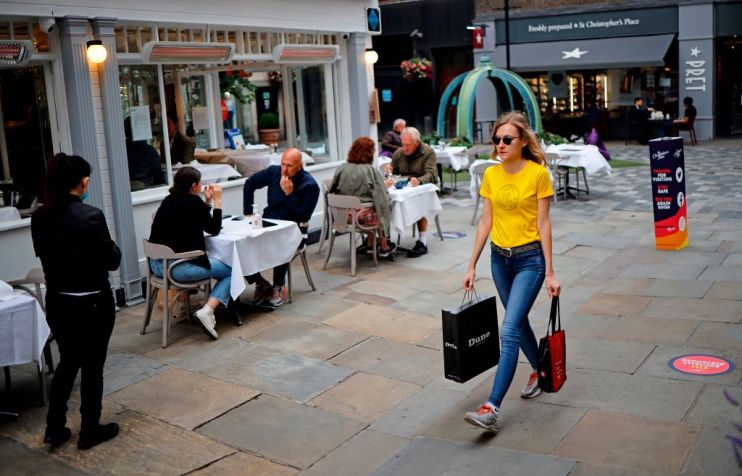Bring me sunshine! Retailers hit by grim April weather as economy held back by the rain

Retailers continued to be bruised by soaring inflation and poor weather conditions in April, as the sector holds out hope for summer to give a much needed boost in sales.
Data by the British Retail Consortium (BRC) showed that while retail sales rose slightly over five per cent during the month, overall inflation meant that volumes were down for both food and non-food as “customers continued to adjust spending habits”.
With rainfall and cool weather conditions present for most of the month, shoppers also held off splurging on a new summer wardrobe, as like-for-like retail sales increased by 5.2 per cent in April, against a decline of 1.7 per cent in April 2022.
“Retailers hope sales will improve over the warmer summer months, especially as consumer confidence stabilises and inflation begins to ease,” Helen Dickinson, chief of the BRC said.
“However, they [retailers] continue to face huge cost pressures from a tight labour market, high energy prices, and other rising input costs, with many retailers reporting lower profits this year as a result,” she added.
Moreover, as the public’s disposable income tightens online non-food sales decreased by 3.6 per cent in April, against a decline of 13.9 per cent in April 2022.
“This is steeper than the three-month average decline of 2.9 per cent and shallower than the 12-month decline of 4.4 per cent,” the BRC reports.
“Retail sales held steady in April with five per cent growth on last year, but against a background of higher inflation year-on-year, masking how much is actually healthy growth for the sector,” Paul Martin, head of UK retail at KPMG, said.
Martin explained: “Consumer demand has so far been fairly resilient to the twin drags of high inflation and high interest rates, but as government energy support comes to an end for many, savings start to dwindle and other household bills rise, it is likely that the next few months will continue to be challenging as the consumer tank empties.”
“Much hinges on whether soaring food inflation can be brought under control enough to allow consumers to comfortably start spending again on non-essential items.”
It comes as a consumer spending report published by Barcalys has further highlighted the impact growing inflation has had on consumers’ purses.
The public spent 7.6 less in restaurants in April than they did in March and sales in clothing declined 2.3 per cent for the third month in a row.
“High inflation continues to squeeze real household disposable incomes and constrain consumption,” Abbas Khan, UK economist at Barclays, said.
He added: “However, this has been somewhat offset by the decline in wholesale energy prices and the price cap on household energy bills, which are contributing to an improvement in consumer confidence.”
However, the arrival of spring and the Easter Bank Holiday weekend fuelled growth at pubs and sports and outdoor retailers, which rose 0.6 per cent and 3.7 per cent respectively.
Esme Harwood, director at Barclays, said: “The arrival of slightly warmer weather, along with the Easter Bank Holiday weekend, led to more Brits venturing outside to enjoy social and leisure activities in April.
“Entertainment received a boost, as music fans rushed to book tickets to the Eurovision Song Contest in Liverpool. Meanwhile, Brits are still searching for ways to reduce spend on essentials, so they can enjoy experiences such as holidays, shows and concerts,” she added.